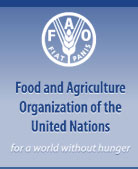A new international study indicates that small-scale bioenergy plants can play a significant role in rural development for poorer nations.
 The new report, “Small Scale Bioenergy Initiatives: Brief Description and Preliminary Lessons on Livelihood Impacts from Case Studies in Latin America, Asia and Africa,” was published jointly by the United Nation’s Food and Agriculture Organization (FAO) and the UK’s Department for International Development. The study covers 15 different “start-up” bioenergy projects from 12 countries in Latin America, Africa and Asia involving a diverse array of technologies.
The new report, “Small Scale Bioenergy Initiatives: Brief Description and Preliminary Lessons on Livelihood Impacts from Case Studies in Latin America, Asia and Africa,” was published jointly by the United Nation’s Food and Agriculture Organization (FAO) and the UK’s Department for International Development. The study covers 15 different “start-up” bioenergy projects from 12 countries in Latin America, Africa and Asia involving a diverse array of technologies.
“The furious debate around bioenergy has largely concerned liquid fuels used for transport,” said Oliver Dubois, a bioenergy expert in FAO’s Natural Resources Department. “Yet more than 80 percent of bioenergy usage in the world involves other sources, mainly wood, which are used for basic household cooking and heating in poor areas of the world.”
According to FAO, concern over the impact these transportation biofuels will have on the environment, water resources and food security has obscured many of the positive benefits for poor rural people. The study shows a number of significant benefits of using new technologies for biomass-based rural energy, such as the creation of useful by-products such as affordable fertilizer from biogas production, the possibility of simultaneously producing food and fuel through intercropping, and the creation of new financial capital with growth cycles by making use of marginal land.

